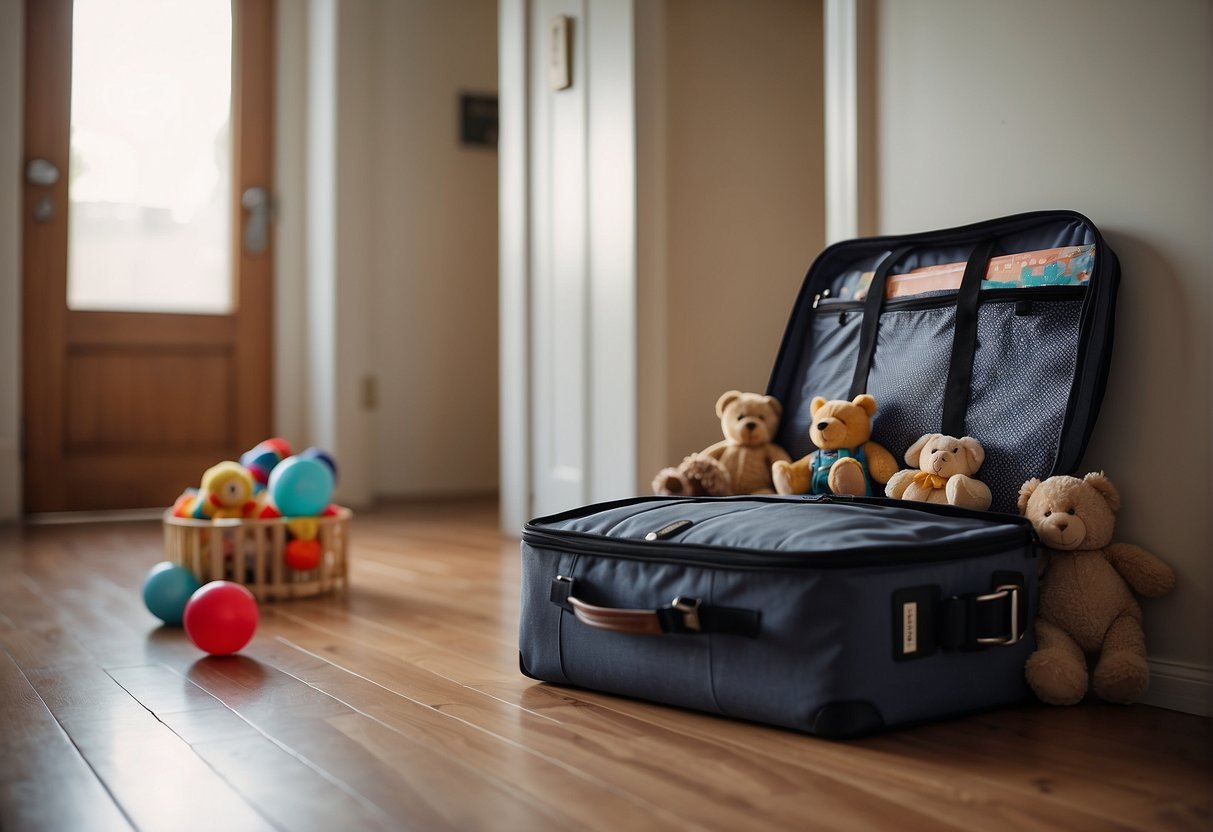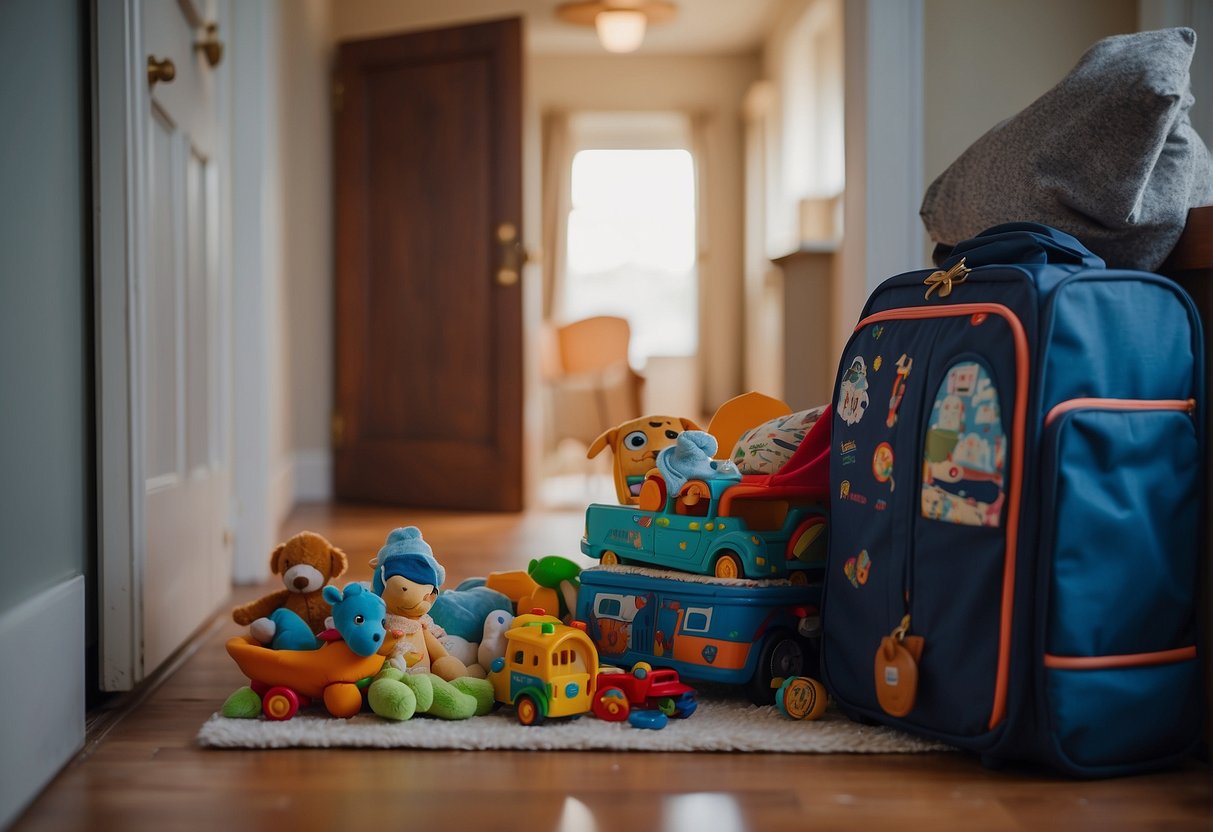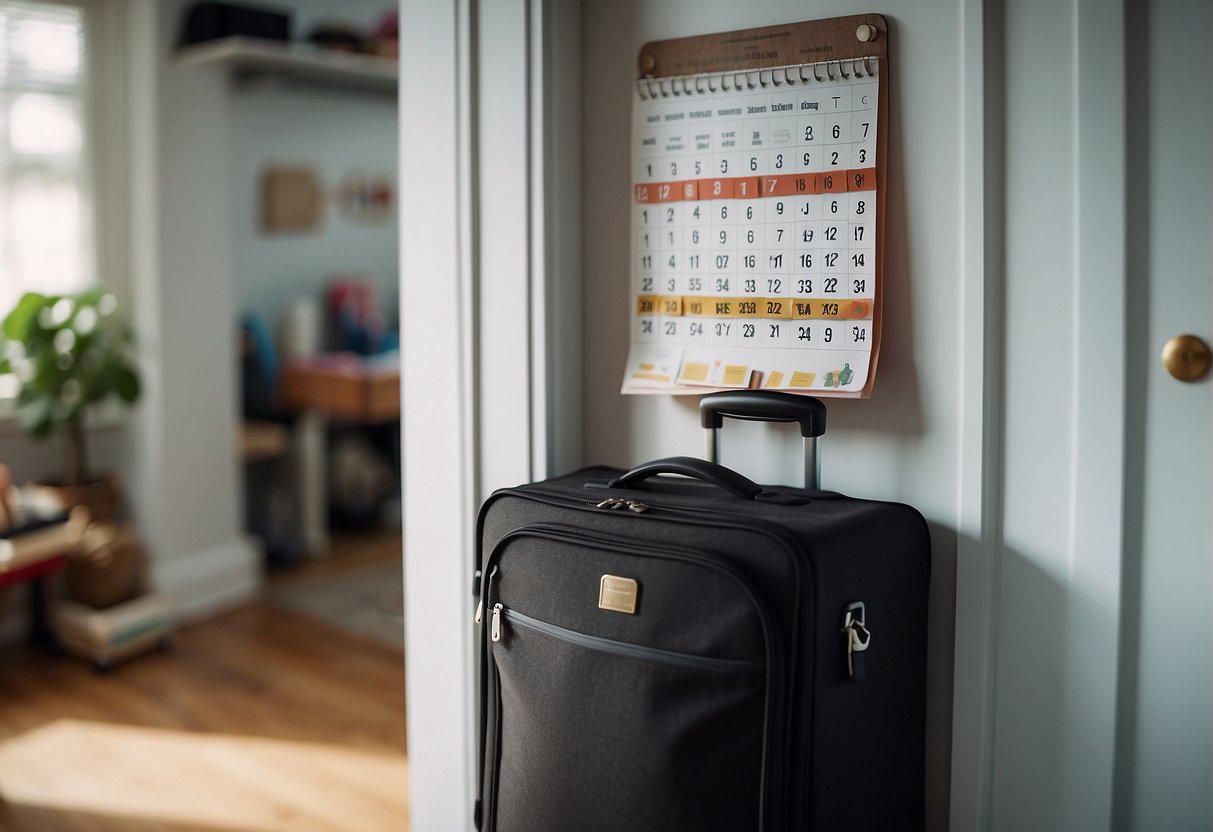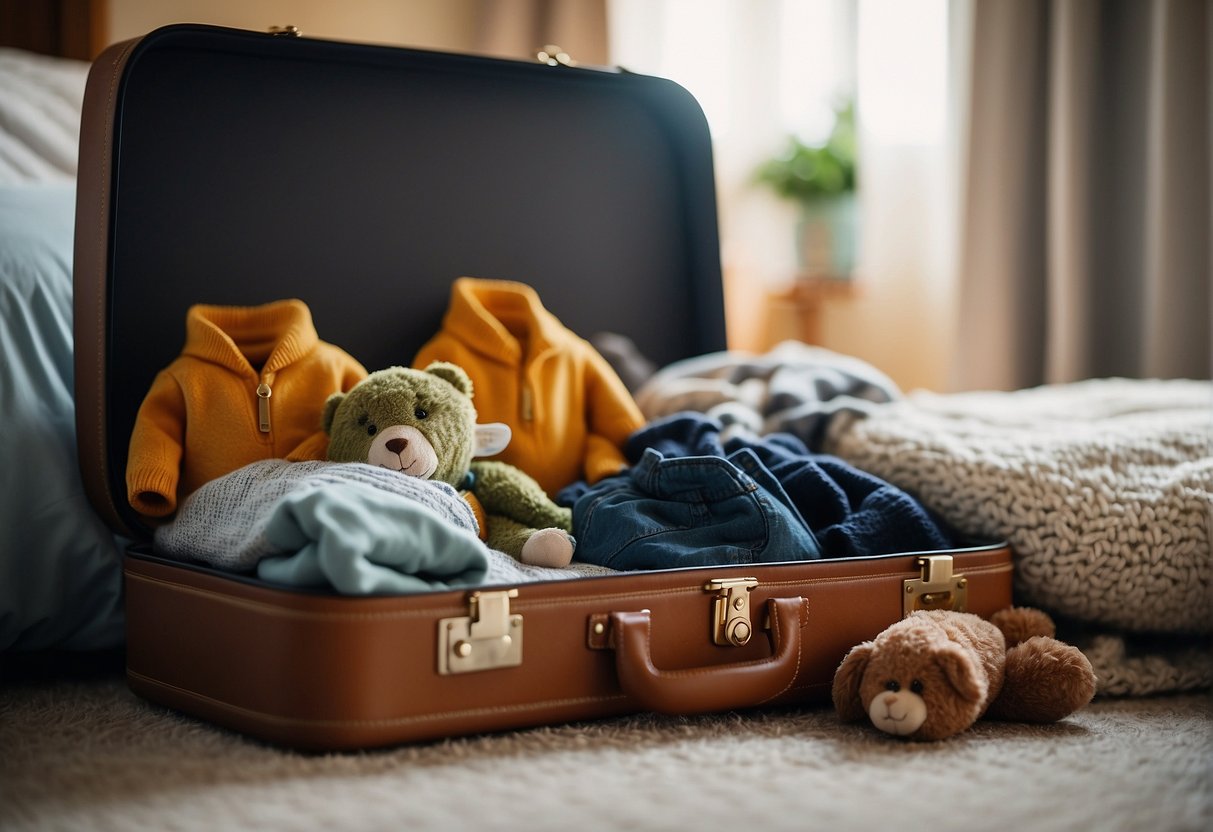Leaving a toddler with grandparents for an extended period of time can be a daunting decision for parents. While it’s natural to feel anxious about leaving your child in someone else’s care, it can also be a great opportunity for your child to bond with their grandparents and for you to have some much-needed time off.
Before leaving your toddler with their grandparents, it’s important to prepare them for the stay. This can involve talking to your child about where they will be staying, who will be taking care of them, and what activities they will be doing. It can also involve packing familiar items such as their favorite stuffed animal or blanket to help them feel more comfortable.
Ensuring continuity of care is also crucial when leaving your toddler with grandparents. This can involve discussing your child’s routine, such as nap times, feeding times, and any other activities or habits they are used to. It’s also important to provide clear instructions for any medication your child may need to take and to leave emergency contact information in case of any issues that may arise.
Key Takeaways
- Preparing your toddler for the stay is important to help them feel more comfortable
- Ensuring continuity of care involves discussing your child’s routine and providing clear instructions for any medication they may need to take
- Communication during the stay and managing separation anxiety are also important factors to consider when leaving your toddler with grandparents.
Preparing Your Toddler for the Stay
Leaving your toddler with their grandparents for a week can be a daunting task, both for you and your child. However, with proper preparation, the experience can be a positive one for everyone involved. In this section, we will discuss two important steps to take in order to prepare your toddler for the stay: discussing the upcoming separation and establishing a routine.
Discussing the Upcoming Separation
It is important to discuss the upcoming separation with your toddler in a way that is age-appropriate and easy for them to understand. Let them know that they will be staying with their grandparents for a few days, and that you will be back to pick them up soon. Reassure them that they will be safe and well taken care of while you are away.
Communication is key during this process. Encourage your toddler to share their feelings and concerns with you. Let them know that it’s okay to feel sad or scared about being away from you, but that they will have a lot of fun with their grandparents.
Establishing a Routine
Establishing a routine is important for toddlers, as it provides them with a sense of consistency and stability. Before you leave your toddler with their grandparents, make sure to discuss their routine with them. This includes nap times, feeding times, and any other activities or habits they are used to.
Create a schedule for your child and share it with their grandparents. This will help them maintain a sense of normalcy while they are away from home. Make sure to include any special instructions or preferences that your child may have, such as favorite foods or toys.
In addition to discussing their routine, make sure to pack all of the necessary items that your toddler will need while they are away. This includes clothes, diapers, wipes, and any special blankets or toys that they may need to feel comfortable.
By discussing the upcoming separation and establishing a routine, you can help prepare your toddler for their stay with their grandparents. With proper preparation, the experience can be a positive one for everyone involved.
Ensuring Continuity of Care
When leaving a toddler with grandparents for a week, it is important to ensure continuity of care. This means maintaining consistency in the child’s routine, parenting style, and health and safety considerations.
Parenting Style Alignment
Parents should discuss their parenting style with grandparents to ensure alignment. This includes discipline, feeding, and sleep routines. If parents have specific rules or preferences, they should communicate them clearly. Grandparents may have their own parenting style, so it is important to find a middle ground that works for everyone.
Health and Safety Considerations
Parents should also discuss any health and safety considerations with grandparents. This includes allergies, medications, and emergency procedures. Parents should provide grandparents with a list of emergency contacts and any necessary medical information. Grandparents should also be aware of any safety hazards in their home, such as sharp objects or stairs.
It is important for parents to trust their chosen caregivers, whether they are grandparents or another trusted individual. Parents should communicate their expectations clearly and provide caregivers with the necessary information and resources to care for their child. By ensuring continuity of care, parents can have peace of mind while they are away from their child.
Managing Separation Anxiety
Separation anxiety is a common issue that parents face when leaving their toddlers with grandparents for a week. It is a normal developmental stage that can occur between 8 to 9 months and can last up to the age of three, according to Parents.com. Recognizing the signs of anxiety and implementing comfort strategies can make the separation process easier for both the toddler and the grandparents.
Recognizing Signs of Anxiety
It is essential to recognize the signs of separation anxiety in toddlers to manage the situation effectively. Some common signs of anxiety include crying, clinging, and refusing to let go of the parent. Toddlers may also become irritable and have trouble sleeping, eating, and playing. They may also show physical symptoms such as headaches, stomach aches, and nausea, according to CHOC Children’s Hospital.
Comfort Strategies
Parents can help their toddlers feel more comfortable and secure by implementing comfort strategies. Maintaining a routine can help the toddler feel more secure and less anxious. Grandparents can follow the same routine as parents, such as eating and sleeping schedules, to help the toddler feel more at ease. Communication is also essential to help the toddler understand what is happening and when they will see their parents again.
Parents can also provide comfort items such as a favorite toy or blanket to help the toddler feel more secure. Grandparents can also engage the toddler in fun activities such as reading books, playing games, or going for walks to distract them from their anxiety.
In conclusion, managing separation anxiety can be challenging, but recognizing the signs of anxiety and implementing comfort strategies can make the process easier for both the toddler and the grandparents. Maintaining a routine, providing comfort items, and engaging the toddler in fun activities can help them feel more secure and less anxious during the separation period.
Communication During the Stay
Leaving a toddler with their grandparents for a week can be daunting for both the parents and the child. However, communication can help ease the anxiety and ensure a smooth stay. Here are some tips for effective communication during the stay.
Setting Expectations
Before leaving the toddler with their grandparents, it is important to set expectations. This includes discussing the child’s routine, such as nap times, feeding times, and any other activities or habits they are used to. It is also important to discuss any specific needs or preferences the child may have, such as allergies or favorite toys.
To ensure that everyone is on the same page, it may be helpful to create a written schedule or list of instructions. This can include important phone numbers, emergency contacts, and any other relevant information.
Keeping in Touch
During the stay, it is important to keep in touch with the grandparents to ensure that everything is going smoothly. This can include phone calls, video chats, or text messages. It is also important to be available in case of emergencies or unexpected events.
It may be helpful to establish a specific time for communication, such as a daily check-in or a weekly video call. This can help provide reassurance to both the parents and the child.
Overall, effective communication is key when leaving a toddler with their grandparents for a week. By setting expectations and keeping in touch, parents can ensure a smooth and stress-free stay for everyone involved.
Special Considerations
Leaving a toddler with grandparents for a week can be a great way to take a break, but it requires careful planning and consideration, especially when it comes to special requirements. Here are some tips on how to handle breastfeeding requirements and deal with emergencies.
Handling Breastfeeding Requirements
If the toddler is still breastfeeding, it is important to make sure that the grandparents are comfortable with it and know how to handle it. The parents should provide clear instructions on how to store and prepare breast milk, and how often to feed the toddler.
It may also be helpful to provide a schedule of when the toddler usually feeds, and how long each feeding session lasts. This can help the grandparents plan their day and ensure that the toddler is getting enough milk.
Dealing with Emergencies
Even with careful planning, emergencies can happen when leaving a toddler with grandparents for a week. It is important to make sure that the grandparents have all the necessary emergency contact information, including the parents’ phone numbers, the toddler’s pediatrician’s phone number, and the nearest hospital’s phone number.
The parents should also provide clear instructions on what to do in case of an emergency, such as when to call 911, how to perform CPR, and how to administer any necessary medications.
In addition, it is important to make sure that the grandparents are physically and mentally capable of taking care of the toddler for a week. Research shows that taking care of a toddler can be physically and mentally demanding, so it is important to make sure that the grandparents are up for the task.
Overall, leaving a toddler with grandparents for a week requires careful planning and consideration of special requirements. By providing clear instructions and making sure that the grandparents are physically and mentally capable of taking care of the toddler, parents can ensure a safe and enjoyable experience for everyone involved.
Frequently Asked Questions
How can I prepare my toddler for staying with grandparents for an extended period?
Leaving a toddler with grandparents for a week can be a challenging experience for both the parents and the child. To help prepare the toddler for the extended stay, parents should start by discussing the trip with the child in advance. They can explain where they are going, how long they will be gone, and who will be taking care of the toddler while they are away. Parents can also arrange a few practice visits to the grandparents’ house to help the toddler become familiar with the new environment.
What are essential things to pack when leaving a toddler with grandparents for a week?
When leaving a toddler with grandparents for a week, it is important to pack all the essential items that the toddler will need during the stay. Parents should pack enough clothes, diapers, wipes, and other necessary items for the entire week. They should also include any medications that the toddler may need and provide clear instructions on how to administer them. Additionally, parents can pack some of the toddler’s favorite toys, books, and snacks to help them feel more comfortable during the stay.
How can I help my toddler cope with separation anxiety when staying with grandparents?
Separation anxiety is a common concern for parents when leaving their toddler with grandparents for a week. To help the toddler cope with the anxiety, parents can maintain a consistent routine leading up to the trip. They can also arrange for frequent video calls or phone calls to check in with the toddler during the stay. Parents can also provide the grandparents with some of the toddler’s favorite items, such as a blanket or stuffed animal, to help them feel more at home.
What strategies can grandparents use to maintain a toddler’s routine while the parents are away?
Maintaining a consistent routine can help the toddler feel more comfortable and secure during the stay. Grandparents can follow the toddler’s regular schedule, including meal times, nap times, and bedtime routines. They can also engage in familiar activities with the toddler, such as reading books or playing games, to help them feel more at ease.
How should parents handle their own anxiety when leaving a toddler with grandparents?
Leaving a toddler with grandparents for a week can be an emotional experience for parents. To help manage their own anxiety, parents can take some time to prepare for the trip, such as packing and making arrangements for the toddler’s care. They can also stay in touch with the grandparents during the stay and arrange for regular updates on how the toddler is doing. Additionally, parents can take some time for self-care activities, such as exercise or meditation, to help manage their own stress and anxiety.
What are the signs that a toddler is ready to stay with grandparents for a week?
Every child is different, and there is no set age or timeframe for when a toddler is ready to stay with grandparents for a week. However, some signs that a toddler may be ready for an extended stay include being comfortable with the grandparents, being able to communicate their needs and wants, and being able to handle changes in routine without becoming overly upset. Parents can also discuss the trip with the toddler and assess their level of comfort and readiness.

My name is Laura, and as a mother of two, I understand firsthand the joys and challenges of raising a child. That’s why I created this website, to provide a comprehensive and trustworthy source of information and support for new and expectant parents.







